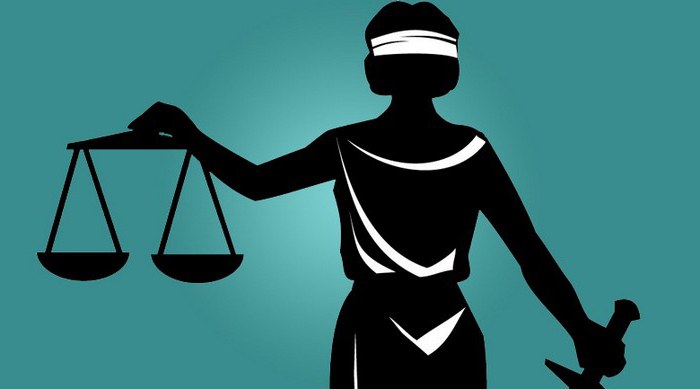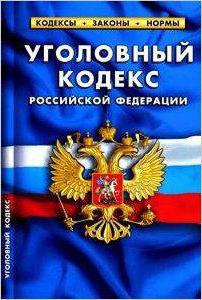The rules governing the prosecution of unfinished crimes are established by article 66. The Criminal Code prescribes the observance of certain terms and amounts of sanctions for such attacks. They are calculated from the maximum established for completed crimes. In practice, difficulties often arise in determining the time or amount of punishment. Accordingly, there are situations of unjustified condemnation of subjects for longer periods. 
Art. 66 of the Criminal Code
The punishment for incomplete assault is established taking into account the circumstances that prevented the perpetrator from completing the crime. The amount or term of the sanctions applied to the subject in preparation for the infringement cannot be more than 1/2 maximum or most severe, established in the Special Part for a completed crime. In the event of an attempt on an unlawful act, they may not exceed 3/4 of the most severe or maximum measure of responsibility provided for a similar completed action. Life imprisonment and the death penalty for incomplete crime are not appointed.
Clarifications to Art. 66
In the considered norm, the legislator differentially decides on the issue of imposing sanctions for unfinished crime. In addition, the preparation stage (Article 66, part 2 of the Criminal Code of the Russian Federation) is separated from the attempt to commit an unlawful act. Higher measures are not normally provided for. 
Cooking
It is considered the first stage of the crime. Cooking is considered the least dangerous action, even in relation to the assassination attempt. In this regard, article 66 of the Criminal Code provides for the mildest sanctions in comparison. The size or term shall be calculated in accordance with those established for the same but completed assault, as defined in the relevant norm of the Special Part.
Attempt
It is considered a more dangerous stage of assault. Nevertheless, the crime itself is incomplete. The amount and duration of the sanction under Art. 66 is limited to 3/4 of the maximum or most severe provided for a similar but completed act. Accordingly, the court is guided by the relevant rule of the Special Part and calculates. At the same time, the authority authorized to consider the case must identify all the circumstances that contributed to the attempt, take into account aggravating and mitigating factors.
Important point
In the practice of courts, there are special cases where a sanction imposed in accordance with Art. 66, turned out to be less stringent than the lower limit provided for in the relevant norm of the Special Part. In these situations, reference to norm 64 is not required. For example, for preparing for an act falling under part three Art. 162, can be assigned no more than 6 liters. imprisonment. At the same time, the minimum punishment for a completed crime at this rate is 7 years. 
Comments on the amount of sanctions
Established penalties for preparations or attempted crimes are maximum for these stages. In this regard, when imposing a sanction for an incomplete act under Art. 66 subject to the grounds provided for in the first part of Article 62, must be calculated according to certain rules. In particular, it sets 2/3 of half the maximum size or term - when cooking, and 2/3 of 3/4 - for a perfect assassination attempt. In identifying a number of circumstances provided for in part two of rule 62, the amount and type of punishment for an incomplete crime may not exceed 1/2 of the maximum established by art. 66, if the person has entered into a cooperation agreement before the court.Similarly, the rules defined in norms 65 and 316 (para. 7) of the CPC should apply. 
Example
The subject was found guilty in accordance with part one of article 228.1 and part three of article 30. He was charged with a prison term of 4.5 years. The trial was held in a special manner, there was no trial. According to the rules established in Art. 316 (in part seven) of the Code of Criminal Procedure, the punishment for crimes that have been sentenced in a special proceeding cannot exceed 2/3 of the maximum amount or term of the most severe sanction for an infringement.
In addition, the person was recognized as guilty of an unfinished act - an attempt on the sale of narcotic drugs. According to the provisions of the third part of Art. 66, the sanction cannot be more than 3/4 of the maximum established for a similar but completed crime. In this situation, the court should have taken into account both principles of establishing sanctions against the accused. This requirement, in particular, is indicated in paragraph 14 of the plenary Resolution of the Armed Forces No. 60 of 5 December. 2006. Upon discovery of the circumstances that are provided for under Art. 66, the punishment of the perpetrator should be applied in accordance with the rules of both this norm and Art. 316 (Part 7) of the Code of Criminal Procedure. 
Case Conclusion
From the above it follows that in case of an unfinished crime, the court should first determine the maximum punishment for incomplete assault. Then the deadline must be reduced, since the case was examined in a special order. Thus, the subject must be punished in the amount of 2/3 of 3/4 of the maximum provided for in the article of the Special Part. Taking into account the established in the first part of Art. 228.1 sanction, the maximum term for the guilty person should not be more than 4 years in prison. Accordingly, the sentence must be amended. The punishment imposed at the initial hearing under part three of Article 30 and parts of the first art. 228.1 should be reduced to the above limits.
